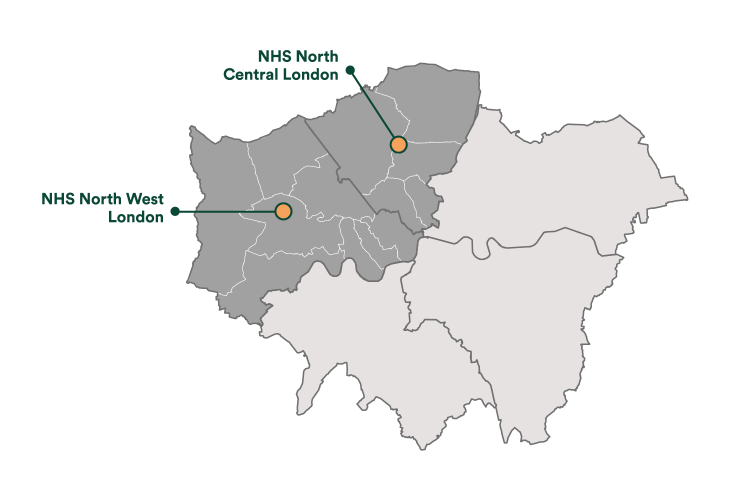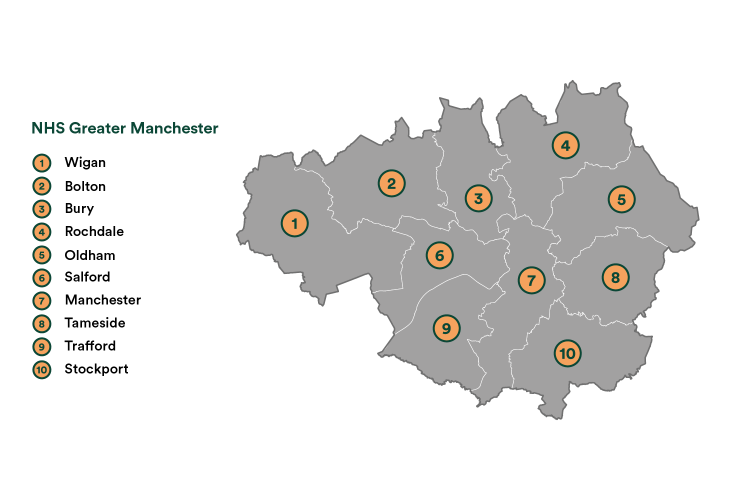Resources
NHS IVF Calculator
The True Cost of Fertility Report

After hundreds of hours of research, we're delighted to share a detailed overview of NHS-funded fertility services by integrated care board (ICB) in England.
This is a live, active document that allows you to see, in one convenient place, exactly what fertility treatment is offered in your local area and who is eligible to receive it.
In addition to sharing our findings, we've put together a brief guide on the key things you need to know if you're considering NHS-funded fertility treatment.
So, is fertility treatment covered by the NHS?
We get this question a lot from those beginning to explore assisted fertility options, so let's get this one out of the way.
The short answer is yes - you can get fertility treatment on the NHS in the UK. But the reality, like so much about fertility treatment, is a whole lot more complicated.
If you live in England or Wales, for example, funding for health services in your local area is overseen by an integrated care board (ICB). According to GOV.UK, ICBs should ensure 'equal access' to fertility treatment across England, in accordance with National Institute for Health and Care Excellence (NICE) guidelines.
Understanding the postcode lottery effect
In reality, ICBs set their own local policies and priorities. That means NHS-funded fertility treatment varies significantly across England and Wales, giving rise to the idea of a 'postcode lottery' that defines, based on where you live:
1. What's included in NHS-funded fertility treatment
You might assume that fertility treatment is the same wherever you are in the UK, and what's included is a standard service. Think again.
Let's take a look at North London in the diagram below:

If you live in an area covered by NHS North Central London, you can access up to 6 embryo transfers from a maximum of 3 cycles of IVF. That's as long as you haven't had 3 previous rounds of IVF elsewhere (regardless of how they were funded).
But if you live down the road, and your postcode switches from the borough of Camden to Brent, then you fall under a different ICB - NHS NW London. This ICB enables you to access up to 2 embryo transfers from a maximum of just 1 cycle of IVF, assuming you haven't previously had any other NHS-funded cycles. Unlike NHS North Central London, though, if you've had privately funded IVF (up to 2 cycles worth), that's ok.
Confused?
Well, if you live in Greater Manchester, it can get even more complicated, because not only the ICB is involved. NHS Greater Manchester says 1-3 IVF cycles can be offered to patients across the region. But exactly how many you can access is determined by which of Greater Manchester's 10 care commissioning groups (CCGs), shown below, you are covered by.

2. Who is eligible for NHS-funded fertility treatment
Eligibility criteria determines who specifically can receive NHS-funded fertility treatment, and is broadly determined by:
Generally, most ICB policies include clinical criteria like how long you should have been trying to conceive naturally before seeking NHS-funded fertility treatment (2 years). There are also requirements for age, body mass index (BMI) and factors like smoking - but they can vary between ICBs.
For example, if you're a heterosexual couple seeking fertility treatment under NHS Black Country, then both parents must have a BMI of less than 30. However, if you're being treated by NHS Birmingham and Solihull, then a dad bod is less of an issue: only the mother needs to meet BMI criteria.
And, if you're back in NHS North Central London and are aged between 40-42, then you are only eligible for 2 embryo transfers from 1 IVF cycle - rather than the ICB's standard 6 transfers from up to 3 cycles.
Eligibility criteria can also vary enormously when it comes to other children in the family. Take a look at these three ICBs from the south of England, and their very different stances on existing children.
Lifestyle criteria is also important, and like everything else, varies between ICBs. Regardless of whether you are a heterosexual or same-sex couple, if your treatment falls under NHS South Yorkshire, you need to demonstrate you've been together for 2 years and have been cohabiting. The ICB for NHS North East and North Cumbria, meanwhile, is apparently more relaxed: no specific timeline for a relationship is referenced.
A third factor, sexual orientation, is also something to take into account. If you are in a female same-sex couple, for example, ICBs have different requirements regarding:
Self-funded artificial insemination can cost between £900 - £1250 per treatment package and it's not uncommon for an ICB to require a female same-sex couple to have undergone 12 rounds of artificial insemination. This makes it a really important budgeting factor to be aware of and the basis for important campaigns about equality in the fertility sector.
Created: 24 July 2023
Last updated: 24 July 2023
